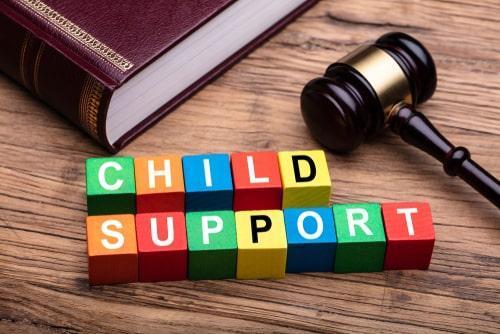Recent Blog Posts
Estate Planning in Medina County: Protecting Your Legacy with Wills and Trusts
 Planning for the future can be a daunting task, but estate planning can help give you peace of mind knowing that your assets will be handled according to your wishes. Wills and trusts are two important estate planning tools that can help you ensure that your loved ones are taken care of after you pass away.
Planning for the future can be a daunting task, but estate planning can help give you peace of mind knowing that your assets will be handled according to your wishes. Wills and trusts are two important estate planning tools that can help you ensure that your loved ones are taken care of after you pass away.
Setup Your Will for Your Estate
A will is a legal document that outlines how you want your assets to be distributed after you die. Without a will, your assets will be distributed according to state law, which may not align with your wishes. A will allows you to name an executor, the person who will manage your estate and ensure that your assets are distributed according to your wishes. You can also name guardians for your minor children, establish trusts for their care, and even leave specific items or amounts of money to certain individuals or charities.
5 Breathalyzer Issues That May Get You Out of an OVI
 When facing an OVI (operating a vehicle impaired) charge, it is important to know your rights. Individuals with a blood alcohol concentration above the legal limit are considered intoxicated per se. One of the most common methods for determining intoxication is through a breathalyzer test, but these tests are not foolproof. Consequently, a failed breath test does not automatically mean that the driver will be convicted of drunk driving.
When facing an OVI (operating a vehicle impaired) charge, it is important to know your rights. Individuals with a blood alcohol concentration above the legal limit are considered intoxicated per se. One of the most common methods for determining intoxication is through a breathalyzer test, but these tests are not foolproof. Consequently, a failed breath test does not automatically mean that the driver will be convicted of drunk driving.
Here are five potential issues with a breathalyzer test that could potentially lead to an acquittal, the OVI case being dismissed, or the charges against you dropped.
Breath Testing Devices Have to be Calibrated to Function Correctly
Breathalyzers have to be serviced and calibrated on a regular basis in order to ensure their accuracy. If it is discovered that the device used during your test was not properly calibrated and maintained, this greatly reduces the reliability of the results. This could potentially be grounds for dismissal of the OVI charge.
Exploring the Pros and Cons of Revocable and Irrevocable Trusts in Ohio
 Most people consider the term "estate planning" to be synonymous with creating a will. A last will and testament is a very useful estate planning instrument. It can allow you to dictate how you would like your assets to be distributed after you pass away as well as establish a guardian for minor children if you pass away before they are adults.
Most people consider the term "estate planning" to be synonymous with creating a will. A last will and testament is a very useful estate planning instrument. It can allow you to dictate how you would like your assets to be distributed after you pass away as well as establish a guardian for minor children if you pass away before they are adults.
However, there are other estate planning tools available, such as trusts, that can be even more beneficial in certain situations. In Ohio, trusts come in two forms: revocable and irrevocable. Both have their advantages and disadvantages; it is important to understand the differences between them before deciding which one is best for your estate.
Revocable Trusts May Be Modified and Give You Continued Control over Trust Assets
A revocable trust allows you to maintain control over the assets contained in the trust while you are still alive. This means that you can decide when, how, and to whom the funds will be distributed and change your mind at any time. Living trusts are typically revocable trusts during the person's life and then become irrevocable upon their death.
How Does an Ohio Judge Address Division of Assets in a High Asset Divorce?
 Traditionally, in the past, when a couple married, whatever assets they each brought to the marriage and whatever assets they amassed together were typically shared. If the couple divorced, then the court would make the final decision on how those assets would be distributed between the two spouses.
Traditionally, in the past, when a couple married, whatever assets they each brought to the marriage and whatever assets they amassed together were typically shared. If the couple divorced, then the court would make the final decision on how those assets would be distributed between the two spouses.
Today, many couples execute prenuptial agreements (or in some cases postnuptial agreements), and/or they keep the majority of their assets separate. This usually makes the division of assets fairly straightforward in the event the couple divorce. But even with prenups and separate financial accounts, there are still many couples who choose the traditional route of commingling assets. How does Ohio law address those divorces, especially if the couple has a high net worth?
Equitable Distribution Method
Under Ohio law, the marital estate is distributed according to the equitable distribution method. Keep in mind, however, that equitable does not necessarily mean equal, as is the case in states that use the community property method that divides the marital estate in half. The court’s goal of equitable distribution is to ensure the couple’s assets are divided fairly, and fairly does not always mean equally. Some of the factors the judge will consider include:
Discovery Process in a Criminal Case
 Facing any kind of criminal charge can be a scary experience. Depending on the seriousness of the charge you are facing and the case the prosecutor is preparing against you, a guilty verdict could have a significant impact on your life and your future. You could even be facing prison or jail time. This is why no matter what the issue is, it is in your best interest to have a skilled criminal defense attorney advocating for you.
Facing any kind of criminal charge can be a scary experience. Depending on the seriousness of the charge you are facing and the case the prosecutor is preparing against you, a guilty verdict could have a significant impact on your life and your future. You could even be facing prison or jail time. This is why no matter what the issue is, it is in your best interest to have a skilled criminal defense attorney advocating for you.
Motions for Discovery
There are many legal tools criminal law attorneys have to defend their clients. One critical tool is the legal right to obtain any information and evidence the prosecution has gathered in their case against a defendant. The process of obtaining evidence in any legal proceeding is referred to as “discovery.”
In a criminal case, a seasoned defense attorney will file a motion for discovery during the pre-trial phase, requesting the court to order the prosecution to turn over its evidence. This evidence can include:
Estate Planning for New Parents
 One of the most exciting times in a person’s life is the birth of a child. There are so many changes and wonderful moments to cherish as you marvel over your new baby and the last thing you are probably thinking about is drafting an estate plan. Many people are under the mistaken impression that estate plans are just for senior citizens, but the truth is that every adult should have an estate plan in place. This is especially true for new parents. Regardless of your marital status, having the legal documents in place that express your wishes for the care of your child should something happen to you is an often overlooked but critical issue for parents to address.
One of the most exciting times in a person’s life is the birth of a child. There are so many changes and wonderful moments to cherish as you marvel over your new baby and the last thing you are probably thinking about is drafting an estate plan. Many people are under the mistaken impression that estate plans are just for senior citizens, but the truth is that every adult should have an estate plan in place. This is especially true for new parents. Regardless of your marital status, having the legal documents in place that express your wishes for the care of your child should something happen to you is an often overlooked but critical issue for parents to address.
Drafting a Will
A will an essential part of any estate plan, but it is particularly important for parents of minor children. Your will is where you name the person you want to be the legal guardian of your child, the person to whom you will entrust the care of your child if you are unable to care for him or her yourself. If you do not have a person named as a legal guardian, the court will do it and the person they choose may not be the same individual you would have chosen.
What Is Child Support Supposed to Cover in Ohio?
 There are many issues that must be decided in an Ohio divorce. If the couple has children, child support may be included in that list. Unfortunately, child support can become a very contentious issue even though which parent will pay and the amount of support are determined by the court. There is often resentment by the paying parent over being legally required to pay. Understanding what child support is actually used for may be able to alleviate some of that resentment.
There are many issues that must be decided in an Ohio divorce. If the couple has children, child support may be included in that list. Unfortunately, child support can become a very contentious issue even though which parent will pay and the amount of support are determined by the court. There is often resentment by the paying parent over being legally required to pay. Understanding what child support is actually used for may be able to alleviate some of that resentment.
Child Support in Ohio
Under the laws of Ohio, child support is calculated using the income shares model. Under this method, the court looks at both parents’ gross income and determines what amount of that combined income was dedicated to the child’s care before the parents split up. Economic tables are used by the court to estimate the monthly cost of raising a child and then the paying parent pays a percentage of that amount based on their proportional share of both parents’ combined income.
Protecting Your Estate Plan
 Many people work hard all of their adult lives, saving for the future and for their families. When the time comes to finally retire, they may have saved a significant “nest egg” and are secure in the knowledge that their family will be taken care of should anything happen to them. However, there are important issues that people often do not even consider when they are thinking about their estate plans. This is where a skilled estate planning attorney can help.
Many people work hard all of their adult lives, saving for the future and for their families. When the time comes to finally retire, they may have saved a significant “nest egg” and are secure in the knowledge that their family will be taken care of should anything happen to them. However, there are important issues that people often do not even consider when they are thinking about their estate plans. This is where a skilled estate planning attorney can help.
Estate Planning Considerations with Adult Children
When you sit down with your attorney to work out your estate plan, you will likely be surveying things based on the current situation. For example, your adult children may be happily married with children of their own and you likely consider their spouse as one of your own children.
But what happens if – after you pass, and your adult child has inherited that significant amount of money you have left them – they and their spouse decide to divorce. Will their spouse get half of that nest egg in the divorce settlement?
How an OVI Charge Can Affect Your Ohio Divorce
 Divorce equals stress. There is no way around it. People going through divorce are often dealing with overwhelming stress while navigating not only through the emotional and financial woes of ending a marriage, but also navigating through the family court system.
Divorce equals stress. There is no way around it. People going through divorce are often dealing with overwhelming stress while navigating not only through the emotional and financial woes of ending a marriage, but also navigating through the family court system.
The last thing a person dealing with this major life event needs to worry about is being arrested and charged with OVI. Unfortunately, it happens, far more often than you would think. Even more unfortunate is not only are there criminal charges to deal with, but an OVI charge can also impact divorce proceedings in a number of ways.
Adds Even More Emotional Stress
Even if you are going through a “friendly” divorce, there is still so much to deal with, no matter how well you and your soon-to-be ex-spouse get along. But throw in an OVI charge and the fragile truce between you and your spouse could collapse over the negative impact this charge can have on you and the relationship you have with your spouse, your children, family, and friends.
I Think My Spouse Is Hiding Assets in Our Ohio Divorce
 In most divorces, property division is a matter of two honest people trying to unwind a set of shared assets. There may be contentious issues, but people usually play by the rules. Unfortunately, this is not always the case. There are times when one spouse attempts to conceal assets from the other in order to keep them for themselves rather than divide them up in the divorce. In these situations it can be helpful for the other spouse to understand some common strategies for finding hidden assets, so that they can be on the lookout for them. These strategies tend to be about cash flow manipulation, and they fall into two basic categories. Spouses hide assets either by concealing their income or making their expenses look bigger.
In most divorces, property division is a matter of two honest people trying to unwind a set of shared assets. There may be contentious issues, but people usually play by the rules. Unfortunately, this is not always the case. There are times when one spouse attempts to conceal assets from the other in order to keep them for themselves rather than divide them up in the divorce. In these situations it can be helpful for the other spouse to understand some common strategies for finding hidden assets, so that they can be on the lookout for them. These strategies tend to be about cash flow manipulation, and they fall into two basic categories. Spouses hide assets either by concealing their income or making their expenses look bigger.
Concealing Income
Income concealment is when a spouse makes it appear as though they have less money coming in than they actually do. There are a number of ways that they can do this. One common method is through coordination with their employer. For instance, a spouse due for a raise or a bonus can talk to their boss and attempt to defer payment until after the divorce process ends. At that point, since the two are no longer married, that spouse gets to keep all the extra income for themselves.




